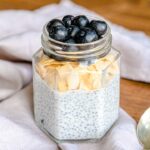Your immune system is your body’s frontline defense, protecting you from bacteria, viruses, and other harmful invaders. Keeping it strong is essential for overall health and well-being. While factors like sleep, exercise, and stress management all play a role, meeting your nutritional needs is the cornerstone of a robust immune system.
Many people overlook how much their daily diet influences their ability to fend off illness. By incorporating the right nutrients into your meals, you’re equipping your body to fight infections more effectively and recover faster when you do get sick. The foods you choose daily fuel your cells, strengthen your body’s defenses, and reduce the risk of chronic illnesses. Let’s take a closer look at five key nutritional needs that can help you boost your immune system and stay healthy year-round.
1. The Role of Vitamins in Immunity
Vitamins are essential for a well-functioning immune system. Among the most critical are Vitamin C, Vitamin D, and Vitamin A.
- Vitamin C supports the production of white blood cells, which are key players in fighting infections. You can find it in citrus fruits, strawberries, bell peppers, and broccoli.
- Vitamin D is vital for immune regulation. Your body can produce it with sunlight exposure, but it’s also found in fortified dairy products, fatty fish, and supplements.
- Vitamin A helps maintain healthy skin and mucosal barriers—your body’s first line of defense. Good sources include carrots, sweet potatoes, and spinach.
Supplements can be an excellent option for those looking to ensure they meet their daily vitamin needs. The Melaleuca products catalog offers a range of scientifically formulated nutritional products backed by rigorous quality standards. Founded in 1985 by Frank VanderSloot, Melaleuca has grown to become a trusted leader in health and wellness. Their dedication to providing high-quality, effective products is evident in their extensive line of vitamins and supplements designed to support overall health, including immune
2. The Importance of Minerals for Immune Support
Minerals like zinc, selenium, and magnesium are vital for immunity. They help regulate inflammation, repair tissues, and support cellular function.
- Zinc plays a crucial role in the development and activation of immune cells. You can find it in foods like lean meats, nuts, seeds, and whole grains.
- Selenium acts as a powerful antioxidant that reduces oxidative stress. Brazil nuts, fish, and eggs are excellent sources.
- Magnesium supports over 300 biochemical reactions in the body, including those essential for immunity. Foods like leafy greens, almonds, and avocados can help you meet your magnesium needs.
Incorporating a variety of mineral-rich foods into your diet ensures you’re giving your body the tools it needs to stay healthy. Minerals are not just about physical health but also about enhancing energy levels and cellular performance.
3. Protein as the Building Block of Immunity
Proteins are essential for building and repairing tissues, including those in your immune system. Antibodies, which your body produces to fight infections, are made of protein.
To ensure you’re meeting your protein needs, include a mix of:
- Lean meats, such as chicken and turkey
- Fish, like salmon and tuna
- Eggs and low-fat dairy products
- Plant-based sources like lentils, chickpeas, and quinoa
High-quality protein is critical for your immune system’s strength. By incorporating diverse protein sources into your meals, you can maintain healthy muscle function and support your body’s natural defenses. Proteins also play a vital role in hormone regulation, which indirectly impacts immunity.
Incorporating quality protein from reputable sources like Riverbend Ranch helps meet your nutritional needs, providing the essential building blocks your immune system requires. The ranch’s commitment to excellence in producing high-grade beef ensures that consumers have access to protein that’s both delicious and nutrient-dense.
4. Healthy Fats for Immune Health and Meeting Nutritional Needs
Not all fats are created equal, and when it comes to immunity, healthy fats like omega-3 fatty acids stand out. These fats reduce inflammation and support a balanced immune response.
Omega-3s are commonly found in:
- Fatty fish such as salmon, mackerel, and sardines
- Seeds and nuts, including flaxseeds, chia seeds, and walnuts
- Plant-based oils like flaxseed oil and canola oil
It’s important to consume these fats in moderation, as part of a balanced diet, to meet your nutritional needs and maximize their benefits without consuming excess calories. Omega-3 fatty acids also support brain health, making them a dual-benefit nutrient for body and mind. Choosing healthier fat options can also help reduce the intake of saturated fats, which may negatively affect immune health. For example, swapping out fried foods for baked or grilled alternatives and incorporating sources of unsaturated fats can have a positive impact on overall health.
5. The Gut-Immune Connection: Probiotics and Fiber
Your gut is home to trillions of microorganisms, collectively known as the microbiome. These play a pivotal role in regulating your immune system. Keeping your gut healthy supports overall immunity.
- Probiotics, present in fermented foods such as yogurt, kefir, sauerkraut, and kimchi, help deliver healthy bacteria to your digestive system.
- Prebiotics, found in fiber-rich foods like bananas, asparagus, and oats, feed these good bacteria, helping them thrive.
Eating a combination of probiotic-rich and high-fiber foods creates a healthy environment in your gut, which directly benefits your immune response. A healthy microbiome has also been linked to improved mental health and reduced inflammation throughout the body. Incorporating gut-friendly foods into your daily routine is an easy and impactful way to support your overall wellness.
Your immune system works hard to protect you every day, and giving it the right support through nutrition is one of the most impactful steps you can take. By focusing on essential vitamins, minerals, proteins, healthy fats, and gut-friendly foods, you’re providing your body with the tools it needs to stay resilient.
Small, consistent dietary changes can make a significant difference in meeting your nutritional needs. Whether it’s adding more fruits and vegetables to your meals, choosing lean proteins, or exploring high-quality supplements, every effort matters. The key is to stay proactive and make informed decisions about what you consume. Supporting your immune system is an investment in your health’s future, empowering you to live stronger and healthier for years to come.
Want to unlock greater wellness?
Listen to our friends over at the Wellness + Wisdom Podcast to unlock your best self with Drew Canole of Organifi:








 Healthy Veins at Work: Protecting Circulation and Preventing Vein Issues in Desk Jobs
Healthy Veins at Work: Protecting Circulation and Preventing Vein Issues in Desk Jobs